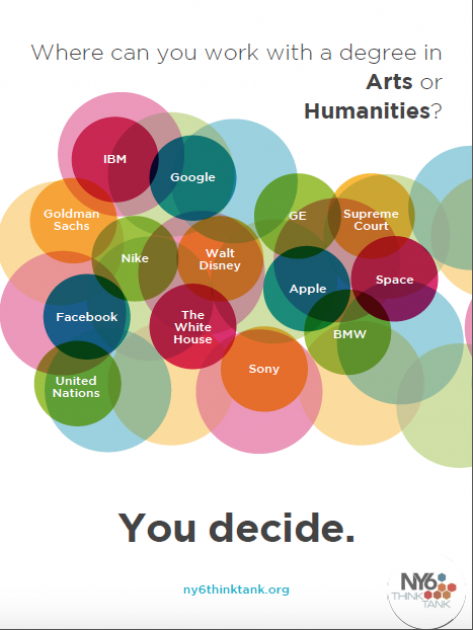This content was published: September 23, 2019. Phone numbers, email addresses, and other information may have changed.
“Soft Skills,” Salaries, and the Liberal Arts
Posted by Andrew Cohen
In this New York Times article, director of the Malcolm Wiener Center for Social Policy at the Harvard Kennedy School, shows how the earnings of liberal arts majors catch up with STEM majors by mid-career. Though STEM majors have a big advantage in terms of their first jobs, he writes, “by age 40 the earnings of people who majored in fields like social science or history have caught up.” As he explains:
“This happens for two reasons. First, many of the latest technical skills that are in high demand today become obsolete when technology progresses. Older workers must learn these new skills on the fly, while younger workers may have learned them in school. Skill obsolescence and increased competition from younger graduates work together to lower the earnings advantage for STEM degree-holders as they age.
“Second, although liberal arts majors start slow, they gradually catch up to their peers in STEM fields. This is by design. A liberal arts education fosters valuable “soft skills” like problem-solving, critical thinking and adaptability. Such skills are hard to quantify, and they don’t create clean pathways to high-paying first jobs. But they have long-run value in a wide variety of careers.”
PCC has a wide array of liberal arts and humanities courses that offer students these kinds of “soft skills” that have value in a wide variety of careers. Learn more HARTS programs.
